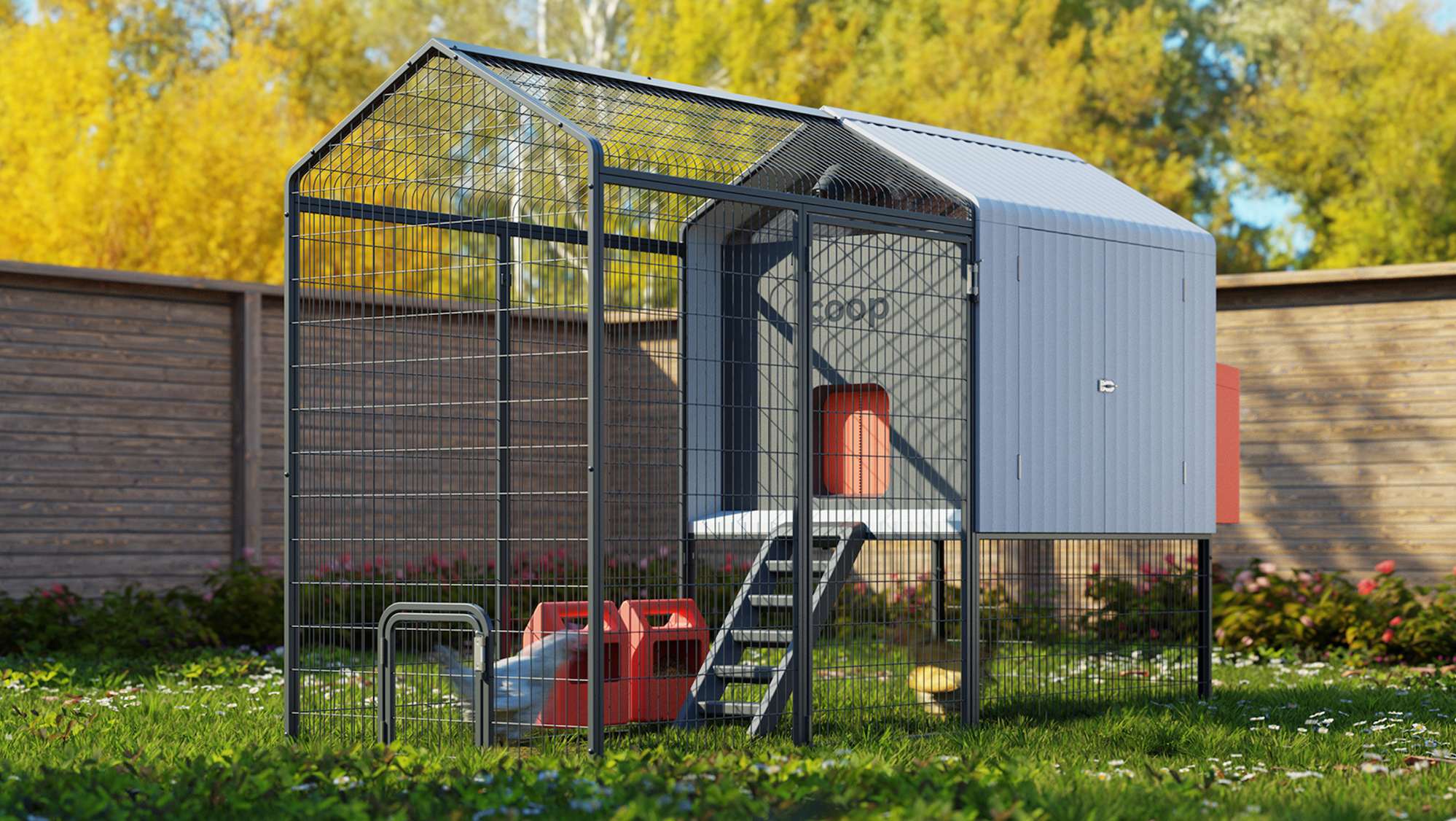Food systems in the US are fairly centralized. That means small disruptions can ratchet up to become large disturbances. Just take the exorbitant egg prices from earlier this year as one example.
To push back against supply chain issues, some households have taken the idea of farm to table a step further. Demand for backyard chickens rose both during the pandemic, and at the start of the year in response to inflation. But raising a flock can come with many unseen challenges and hassles. A new startup, Coop, is hatching at exactly the right time.
Coop was founded by AJ Forsyth and Jordan Barnes in 2021, and it packages all of the software essentials of a smart home into a backyard chicken coop.
Barnes says that she can’t resist an opportunity to use a chicken pun; it’s peppered into the copy on their website, as well as the name for their products, and is even baked into her title at the company (CMO, she notes, stands for chief marketing officer, but also chicken marketing officer). She and co-founder Forsyth invited Popular Science to a rooftop patio on the Upper East side to see a fully set up Coop and have a “chick-chat” about the company’s tech.
In addition to spending the time to get to know the chickens, they’ve spent 10,000 plus hours on the design of the Coop. Fred Bould, who had previously worked on Google’s Nest products, helped them conceptualize the Coop of the future.
The company’s headquarters in Austin has around 30 chickens, and both Barnes and Forsyth keep chickens at home, too. In the time that they’ve spent with the birds, they’ve learned a lot about them, and have both become “chicken people.”
An average chicken will lay about five eggs a week, based on weather conditions and their ranking in the pecking order. The top of the pecking order gets more food, so they tend to lay more eggs. “They won’t break rank on anything. Pecking order is set,” says Barnes.
Besides laying eggs, chickens can be used for composting dinner scraps. “Our chickens eat like queens. They’re having sushi, Thai food, gourmet pizza,” Barnes adds.
For the first generation smart Coop, which comes wi…
